- About
- Membership
- Resources
- Awards
- Events
- Get Involved

We congratulate the 2025 NABT Teaching Award Recipients and are honored to recognize their achievements.
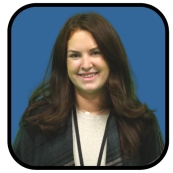
Hopewell Valley Central High School, Pennington, NJ
Biography
I am a high school biology educator at Hopewell Valley Central High School in Pennington, NJ. I have taught all levels of biology over the last 10 years, and currently I teach AP and Honors Biology. I graduated from The College of New Jersey in 2015 with a B.S. in Biology-Secondary Education. I have dedicated my career to participating in and leading professional development that promotes student engagement and scientific literacy. I spent the early part of my career as a board member of the Biology Teachers Association of NJ. Most recently, I participated in the Humane Genetics study led by Dr. Brian Donovan, which aimed to reduce racism in the biology classroom by revising teaching practices in genetics. The work in this study inspired me to further pursue my education through the Masters in Biological Sciences program at Clemson University, where I am currently enrolled.
Personal Statement
My desire to become a teacher came from the experience I had with undergraduate research. I was lucky enough to study under Dr. Tracy Kress for all four years of my undergraduate at TCNJ, where I eventually published my work in RNA Biology. I realized entering the lab for the first time as an undergraduate that I never really understood how science worked in the real world at all. This experience set me on a path to provide a classroom experience where we don’t just learn about science, rather we “do” science just like a real scientist does everyday. I want students to leave the classroom with both knowledge and skills that can make them informed citizens in our ever-changing world.
Since the start of my teaching career I have worked on bringing innovative practices to the classroom such as problem-based learning and phenomena-based learning to promote stronger scientific literacy in students. I have had a lot of support from great colleagues and mentors over the years, including Rob Richard, my college professor who started it all and nominated me for this award. In my career, I hope to inspire both my students and other educators to improve the way we teach and learn science.
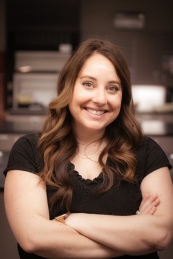
Florence Jr/Sr High School, Florence, CO
Biography
I received my undergraduate degree from Austin College, in Sherman, Tx and my graduate degree in Biology from Texas A&M University at Commerce. I hold a doctorate of education from the University of Denver. My research areas include secondary gifted programming, rural gifted programming, and the use of AP classes for gifted students. I have been a teacher for the past 15 years. For the first 10 years I taught AP Environmental Science and AP Biology in Plano, Texas. For the past five years, I have taught in southeastern Colorado at Florence Junior Senior High School where I teach AP Environmental Science, Dual-Credit Biology, and 9th grade Biology. In addition to teaching, I work as a consultant for the College Board, and have been fortunate to lead trainings across the US. In my free time I enjoy hiking, gardening, traveling, and spending time with friends and family.
Personal Statement
I never meant to get into education - I kinda stumbled into it via substitute teaching, thought I would stick around for a few years while I figured out what else I wanted to do, and somewhere along the way I fell in love with teaching students and other teachers. Over the 17 years that I have taught, my teaching philosophy has always been simple, I want kids to learn to love science and be curious about the natural world around them. I don’t care if they end up studying science or going into a career in science, but I want them to learn to love science. I want them to go home at night and tell their parents about the things that they learned. I want to have classes that start discussing point A, but ultimately end at point Z because students ask questions that drive the discussion based on what they want to know. I have learned that the student/teacher relationship always comes first, but if that is on solid ground, science learning can grow by leaps and bounds.
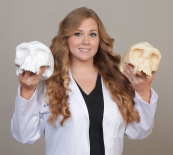
University of Maryland Eastern Shore, Princess Anne, MD
Biography
Dr. Molly Selba is an Assistant Professor of Anatomy in the Doctor of Physical Therapy program at the University of Maryland Eastern Shore (UMES), a Historically Black College and University (HBCU) on Maryland’s rural Eastern Shore. She earned her Ph.D. in Biological Anthropology from the University of Florida, where she focused her research on craniofacial morphology and evolutionary anatomy. While completing her doctoral studies, Dr. Selba also worked as a high school anatomy and biology teacher in Georgia, a formative experience that deepened her dedication to improving science literacy and combating misinformation, especially in underserved communities.
Her commitment to outreach led her to establish the Human Evolution Teaching Materials Project, an initiative that provides K-12 educators with 3D-printed hominin skulls and resources for hands-on evolutionary anatomy education. As part of the Scientist in Every Florida School initiative, she visited dozens of classrooms across Florida, engaging directly with students to inspire curiosity and promote evidence-based understanding of biology and human origins.
Dr. Selba has led several teacher workshops focused on evolutionary anatomy education, including a nationally recognized Human Evolution Summer Teacher Workshop that brought together educators from across the Southeast to learn how to integrate human origins into their science curricula. These workshops have fostered lasting collaborations and created a strong network of support among educators.
As a current NCSE Sound Science Fellow, Dr. Selba continues to promote science literacy, defend the integrity of science education, and support educators in addressing challenges in teaching evolutionary anatomy. She is especially committed to empowering teachers and expanding outreach to minority-serving and rural communities through her work at UMES.
Personal Statement
My teaching experience spans both K-12 and higher education, from teaching high school biology and anatomy to doctoral-level human anatomy instruction. I have prioritized hands-on, inclusive, and evidence-based approaches to teaching biology and life sciences, particularly evolutionary anatomy. My goals are to empower educators and students to approach evolutionary anatomy as an accessible and evidence-driven topic, using resources like 3D-printed hominin skulls through my Human Evolution Teaching Materials Project. I am committed to continuing outreach in underserved communities—especially rural areas and minority-serving institutions—and to supporting educators as they foster science literacy, address misconceptions, and promote curiosity about the natural world.
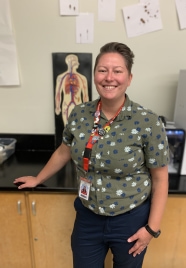
Homewood-Flossmoor High School, Tinley Park, IL
Biography
I’m Corinne Zimmerman, a high school biology and anatomy teacher at Homewood-Flossmoor High School in Illinois, where I helped implement NGSS storylines into the biology curriculum and I also designed the curriculum for our Honors Anatomy & Physiology course. My work as an educator is grounded in justice, equity, diversity, and inclusion, and I strive every day to create spaces where students, especially those historically underrepresented in science, feel seen, valued, and empowered.
I began my teaching career at Joliet Central High School, a high-needs school serving a predominantly Latino and multilingual student population. There, I helped develop an asynchronous biology credit recovery program to support students balancing academic challenges with family and work responsibilities. I also served as a cultural coach, helping teachers implement culturally responsive strategies, and organized “Critical Community Conversations” to engage families in discussions about equity and race.
Before returning to the classroom, I served as a district science curriculum director, leading professional learning aligned to the Understanding by Design framework and our district’s equity goals. I’m especially passionate about connecting students with real-world opportunities, whether through field trips to local hospitals, participation in STEAM nights, or simply making science feel meaningful and relevant to their lives.
I grew up in a low-income, single-parent household, I understand the power of representation, advocacy, and belief. I teach because I was once the student who needed someone to believe in me. Now, I hope to be that person for my students every single day.
Personal Statement
In my classroom, science is a vehicle for empowerment. I design learning experiences that are hands-on, culturally relevant, and story-driven so that students can see the connections between biology and their everyday lives. From modeling genetic diseases like sickle cell anemia to exploring environmental justice through local water supply issues, my goal is to foster curiosity, scientific literacy, and self-confidence in all learners.
I place a strong emphasis on creating inclusive spaces where every student feels seen and valued, particularly those who have historically been underrepresented in STEM. I strive to dismantle barriers through restorative practices, differentiated instruction, and real-world outreach opportunities. Whether it’s connecting students to diverse professionals in the medical field or encouraging them to pursue science electives they didn’t think were “for them,” I want my students to walk away knowing they belong in science and that science belongs to them.
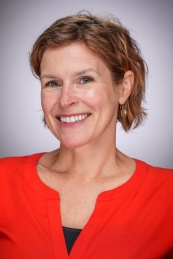
Vanderbilt University, Nashville, TN
Biography
Cynthia Brame is an associate professor of the practice in Biological Sciences at Vanderbilt University, where she teaches introductory biology, genetics, biochemistry, and pedagogy courses. Originally trained as a biochemist, Dr. Brame focuses her research on developing, understanding, and sharing science teaching practices that improve the undergraduate experience for all students, with a particular focus on understanding ways that undergraduate learning assistants (LAs) can decrease psychosocial barriers for students in gateway science and math courses. Dr. Brame is the author of Science Teaching Essentials: Short Guides to Good Practice (2019), served as founding co-editor of the CBE Life Sciences Education Evidence-Based Teaching Guides, and is the director of Vanderbilt’s LA program.
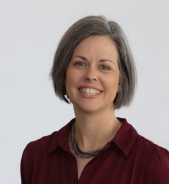
Stefanie Leacock, PhD
Lyon College School of Dental Medicine, Batesville, AR
Biography
Dr. Stefanie Leacock earned a B.S. in Biological Sciences from Florida State University and a Ph.D. in Genetics from Yale University. For her dissertation research, she investigated C. elegans germline gene expression using a genomics approach, ultimately characterizing two novel maternally-expressed worm genes that promote embryonic germline establishment. Dr. Leacock’s postdoctoral research at UT Southwestern Medical Center, funded by the American Cancer Society, used zebrafish as a model organism to study the mechanisms by which the Ewing’s Sarcoma fusion protein contributes to tumorigenesis. Dr. Leacock taught in the School of Biological Sciences at the University of Texas at Austin and then in the Biology Department at the University of Arkansas at Little Rock before joining the faculty of the Lyon College School of Dental Medicine in 2025.
As a university biology instructor, Dr. Leacock received grant support to develop Open Education Resources, which include online interactive practice questions, for undergraduate genetics on the LibreTexts platform. She has been awarded a Promoting Active Learning & Mentoring (PALM) Fellowship and an Ethics Network for Course-based Opportunities in Undergraduate Research (ENCOUR) Fellowship. The latter supported development of a new teaching module for Responsible Conduct of Research education (RCR) in a developmental biology lab course. Her work has been recognized by the UT Austin School of Biological Sciences Outstanding Teaching Award, a UA Little Rock JumpStart for Teaching Award, and the UA Little Rock Student Government We Heart Our Faculty Award.
Personal Statement
Dr. Stefanie Leacock earned a B.S. in Biological Sciences from Florida State University and a Ph.D. in Genetics from Yale University. For her dissertation research, she investigated C. elegans germline gene expression using a genomics approach, ultimately characterizing two novel maternally-expressed worm genes that promote embryonic germline establishment. Dr. Leacock’s postdoctoral research at UT Southwestern Medical Center, funded by the American Cancer Society, used zebrafish as a model organism to study the mechanisms by which the Ewing’s Sarcoma fusion protein contributes to tumorigenesis. Dr. Leacock taught in the School of Biological Sciences at the University of Texas at Austin and then in the Biology Department at the University of Arkansas at Little Rock before joining the faculty of the Lyon College School of Dental Medicine in 2025.
As a university biology instructor, Dr. Leacock received grant support to develop Open Education Resources, which include online interactive practice questions, for undergraduate genetics on the LibreTexts platform. She has been awarded a Promoting Active Learning & Mentoring (PALM) Fellowship and an Ethics Network for Course-based Opportunities in Undergraduate Research (ENCOUR) Fellowship. The latter supported development of a new teaching module for Responsible Conduct of Research education (RCR) in a developmental biology lab course. Her work has been recognized by the UT Austin School of Biological Sciences Outstanding Teaching Award, a UA Little Rock JumpStart for Teaching Award, and the UA Little Rock Student Government We Heart Our Faculty Award.
Greenbrier High School, Evans, GA
Biography
I became an educator to be a change agent for STEM and science education, but I fell in love with teaching because of my students. As a NCSU Teaching Fellow, I earned my BS in Secondary Science Education-Biology and discovered a passion for molecular biology, biochemistry and genetics. Collaborative university and community partnerships unlocked my creative potential for curriculum development, so I earned my MS and EdS in Curriculum and Instruction from Missouri Baptist University. Determined to advocate for STEM integration in the life sciences throughout my career, I received grants to equip my classroom with biotechnology to immerse my students in genetics applications in all the life science courses I taught. I am a 2025 Georgia Finalist for the PAEMST, the 2024 OBTA for Georgia, a finalist for 2025 Georgia TOTY, and the 2024 GSTA Science TOTY. I serve on the GSTA Board as the High School Science Representative and the Advocacy Committee Co-Chair. To provide relevance and context for students’ learning, I advocate for STEM literacy through phenomena/case-based instruction and storylines. For my Master's thesis, I conducted action research on the impact of case-based instruction on student engagement and achievement which eventually led me to write and publish three different case studies on various genetic conditions. I am a Vernier Trendsetter, a CDC Ambassador Fellow, a Scaling Up for STEM Alumnus and a GaDOE Teacher Policy Fellow. I aim to unlock the creative potential of students to help them connect our classroom to community, careers and citizenship.
Personal Statement
A number of my students share with me how after one of my classes they see the world through a different lens because we focus on making sense of the natural world around us. Providing opportunities that encourage students to be curious and to utilize their own creative potential is my passion. The publication of The Framework put into words a teaching philosophy that allows me to create a learning environment that promotes collaboration, fosters critical thinking, and provides students the opportunity to experience how scientists think and what scientists do to better understand our natural world and our role in it. Integrating STEM through biotechnology and genetics helps to put this philosophy into practice. Through modeling, scientific investigation, and more, my students start to understand how knowledge of DNA and heredity has led to innovations in biotechnology which enable us to design solutions for medicine, agriculture, pharmacogenomics, and many other industries. Currently, I am developing an AP with WE Service program with the Georgia Cancer Center centered on public health with a focus on Sickle Cell Anemia and cancer biology, particularly HER2 and BRCA2 mutations. In July 2025, I will attend a computational materials engineering teacher institute at MIT as part of the Materials Genome Initiative to further develop a Protein Innovation Project I created so students can see how knowledge of DNA, proteins and gene expression can generate ideas for innovations for new materials that can solve all kinds of problems. Enhancing these experiences with career exploration and community partnerships helps me to cultivate the next generation of innovators through genetics education.
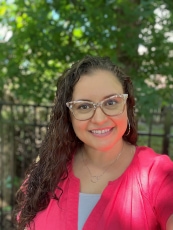
Butler Community College, Wichita, KS
Sponsored by NABT, BFW Publishers, and Donations
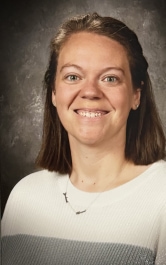
Los Alamos Highschool, Los Alamos, NM
Biography
An experienced educator with a strong foundation in both science and mathematics, Kyla Hooker currently teaches AP Biology, Biology, and Chemistry at Los Alamos High School in New Mexico. With a passion for interdisciplinary, inquiry-driven instruction, Kyla brings a dynamic, student-centered approach to the classroom; rooted in real-world relevance and equity.
Previously, Kyla taught Advanced Algebra through AP Calculus AB at a Title I school in Atlanta, Georgia, where she led professional development on creativity in mathematics and developed project-based learning units. Across both schools, she has served on Safe & Civil Schools committees and as a National Honor Society sponsor, helping cultivate positive school climates and student leadership.
Holding Master’s degrees in Life Science and Instructional Design (in progress), and a Bachelor’s in Mathematics with a focus on Mathematical Biology, Kyla blends content expertise with evidence-based pedagogy. Her graduate research in ecological modeling and published work in immunology reflect a deep commitment to connecting science education with current research and practice.
Dedicated to ongoing growth, Kyla actively seeks opportunities to enhance instruction through professional development, technology integration, and collaboration with local laboratories to bring authentic lab experiences to students. As a member of the National Association of Biology Teachers, she values national conversations that shape the future of science education.
Kyla believes that transformative teaching requires continual reflection, innovation, and engagement with the broader educational community, principles that guide her work every day in the classroom and beyond.
Sponsored by NABT
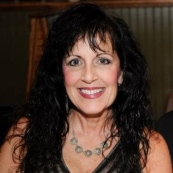
Kennesaw Mountain High School, Kennesaw, GA
Biography
Dr. Joanne Jezequel has been a dynamic science educator at Kennesaw Mountain High School for over 20 years. She created and leads the school’s unique “Triple Play” course—an integrated curriculum combining Honors Anatomy & Physiology, AP Biology, and Post-AP Advanced DNA/Genetics. She also teaches AP Psychology and has served as an AP Reader for over a decade. A member of the school’s Guiding Coalition, she has received multiple instructional grants, been recognized by students as the teacher “most likely to teach you a life lesson,” and coaches tennis.
Originally a post-graduate level clinical sciences professor, Dr. Jezequel recently taught Anatomy lecture and lab courses at Kennesaw State University, while concurrently fulfilling her role at KMHS. Her vast teaching experience spans a wide range of science and health-related subjects showcasing her versatility and expertise. Beyond the classroom, she wrote and edited the script for an award-winning animated biology video on the cell, an example of her passion for making complex content accessible and engaging.
Dr. Jezequel holds a BA in American Studies—where she was likely the only liberal arts major selecting Genetics as an elective—an MA in Secondary Science/Biology Education, an Ed.S. in Curriculum and Instruction, and an Ed.D. in Curriculum and Teaching. Years ago, she also earned a Doctor of Chiropractic degree. This eclectic academic background informs her holistic and captivating teaching style.
Dr. Jezequel continues to inspire students and colleagues through her innovative curriculum design, interdisciplinary approach, and dedication to excellence in science education.
Personal Statement
As the world hurtles into the future, society will inevitably face countless decisions requiring thoughtful regulations and guidelines—decisions best made by a population grounded in scientific understanding. An authentic grasp of the life sciences must be a cornerstone of this global conversation. I see my legacy as equipping my students with a deep sense of personal responsibility to be vital, contributing members of society—armed with the shield of scientific literacy, committed to lifelong learning, and dedicated to making the world a better place for having been here.
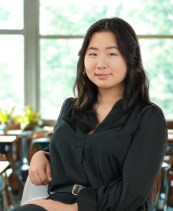
James Logan High School, Union City, CA
Biography
Lia Kim is a dedicated early-career biology teacher at James Logan High School in Union City, California. She was raised in Seoul, South Korea, and Hau‘ula, Hawai‘i, and her multicultural background has influenced her commitment to bridging rigorous scientific inquiry with inclusive, culturally responsive teaching practices. Coming from generations of educators, Lia was especially influenced by her grandmother, Sook-Ja Kwon, a lifelong Korean studies teacher who taught her that genuine care and joy can profoundly shape students’ lives. Lia earned her B.S. in Earth Systems with a concentration in Sustainable Food and Agriculture and completed her M.A. in Education at Stanford University.
Passionate about ecological research, Lia has led projects ranging from studying tripartite symbiosis in Bishop Pine forests to investigating the environmental impacts of genetically engineered microorganisms as a BioRETS INSPIRE Teacher Fellow at Stanford. These experiences have deepened her understanding of complex ecological systems and inspired her to integrate cutting-edge research into hands-on learning experiences for students.
In the classroom, Lia strives to reimagine biology education by honoring land-based practices and intergenerational knowledge that have guided communities for centuries. She designs inquiry-driven lessons grounded in real-world phenomena and students’ curiosities, utilizes Virtual Reality headsets to provide first-person embodied experiences, and engages students in music, art, and community-based projects that reflect her commitment to creativity and care-- empowering them to see themselves and their communities as leaders in science. In recognition of her dedication, she was named James Logan High School’s 2024 Teacher of the Year.
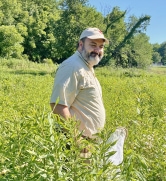
Black Hawk College, Moline, IL
Biography
Isaac Stewart has always been fascinated with insects, exhausting every book his local library had on the creatures and seizing every opportunity to learn as much as possible. Growing up in Dixon, Illinois there was also no shortage of opportunities to work on prairie recreation efforts at Nachusa Grasslands and The Green River Wildlife Conservation Area. This ultimately lead to an education in the Department of Entomology at the University of Illinois at Urbana-Champaign where my undergraduate and graduate careers were spent working a diversity of research projects focused bumble bee diversity and decline across the U.S. Being honored in 2009 with the Knowles Science Teaching Foundation Fellowship, teaching became his life’s work spending five years teaching high school biology at Fisher Jr./Sr. High School in rural Fisher, Illinois. In his current position at Assistant Professor of Biology at Black Hawk College East Campus, he continues to use these experiences, especially the work studying pollinator diversity and decline in the U.S., to educate students on the ecological importance of native pollinators especially bumble bees in the classroom, laboratory and field. Teaching diverse courses including introductory biology, general biology, human anatomy and physiology, and environmental science has allowed him to implement a wide variety of research-based teaching strategies that engage his students. His current passions include providing undergraduate research opportunities to community college students, working to create an engaging classroom experience where students do science as they learn it, and spending time with his wife Tessa and their two-year-old son Ulysses.
Personal Statement
My favorite irony is that I received notification of this award while out in the field leading a group of adventure field trip attendees exploring the biodiversity of my fields sites where I conduct my insect survey research. I think this exemplifies my view of teaching in that there is nothing more valuable than the immersive experience to help learners grow. With my goal of trying to challenge and support all learners, I challenge myself to try to make every segment of time with students feel valuable and result in growth.
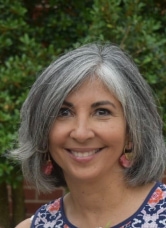
Hampton Roads Academy, Newport News, VA
Biography
Maribel Gendreau is an educator with over 20 years of experience teaching biology-related courses. She earned a Ph.D. in neuroscience in 1995. Currently, she serves as the chair of the Science Department at Hampton Roads Academy in Newport News, VA. In 2021, she began teaching biotechnology to introduce students to real-world lab techniques and research practices. As part of the class, Maribel launched a school-wide research program that culminates in an annual symposium where students present their independent projects. Her teaching blends scientific rigor with accessibility, aiming to make advanced STEM experiences available to all learners. Dr. Gendreau is especially passionate about connecting students with authentic, real-world science through hands-on learning experiences.
Personal Statement
I think the best way for students to learn science is by actually doing it. My goal is to give them hands-on experiences that connect biotech to the real world and help them see themselves as real scientists. When they get to explore their own ideas and realize their work matters, it builds confidence and purpose. I’ve seen how even a simple lab can spark curiosity, and how doing real research can totally change the way they see science—and themselves. The best part of teaching is watching students take the lead and feel like they can truly make a difference.
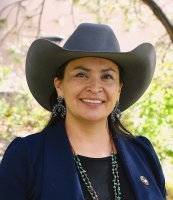
University of New Mexico-Valencia, Albuquerque, NM
Biography
I am a Navajo Microbiologist woman teaching science and conducting research with students who I relate to and who relate to me. I am Bitter Water Clan, and I am born for Red Running Into the Water People Clan. I grew up on my family’s ranch in Sanostee, NM, a rural part of the Navajo Reservation.
I am an Assistant Professor of Biology at the University of New Mexico (UNM)-Valencia Campus where I started teaching in Fall of 2020. I discovered my passion for microbiology at Diné College, a community college in Shiprock, NM. To pursue my passion, I earned my B.S. and M.S in Microbiology from Arizona State University and the University of Iowa, respectively.
I am also passionate about mentoring and encouraging the next generation of Native American and Hispanic students, therefore I returned to my home state. I earned my PhD in Biology at UNM where I investigated how bacteria gathered iron from within caves at Carlsbad Caverns National Park (CCNP). Then I enhanced my teaching pedagogy as a UNM-ASERT Postdoctoral fellow where I worked with teaching mentors from local colleges.
Now, I live my passion, which is teaching Biology and Microbiology and bringing research into my courses. My students bring their own perspectives to understanding the research question, Is the overall health of an individual affected by their oral microbial diversity, and they present their findings. In my free time, I enjoy riding my horses, bike riding with my husband, Chris, and camping in the mountains.
Personal Statement
I value that I am relatable to my students and that I am honest in talking about my background. I think it’s important, because it sets the stage for a sense of trust and community at the beginning of the semester.
My teaching philosophy is rooted in knowing that my students leave my classroom trusting themselves, trusting their critical thinking process, and are proactive leaders of their own education. Through the semester, I facilitate active learning strategies that include critical thinking problems, which I believe helps students build trust in their reasoning thereby leading to building confidence in their learning.
I love teaching at the community college level because it gives me an opportunity to understand my students personally. Not only am I guiding them through the required course material, but I am also encouraging them to try their best, holding them accountable to class participation and completing assignments, and reminding them of the expectations that they have of themselves. When students are feeling overwhelmed with balancing coursework, their jobs, and raising their families, my job is to remind them to take it one step at a time and that it’s going to be okay.
In closing, what brings the most joy to my teacher’s heart is the confidence I see in their thinking and explanation from the first time I meet them to when they are completing my microbiology course. No longer are they worried that a critically thinking problem that we are working on can have more than one answer. I trust that at the end of my courses, my students are confident learners, and they will take charge of their educational and career paths.

The National Association of Biology Teachers empowers educators to provide the best possible biology and life science education for all students.
NABT, P.O. Box 335, Heber City, UT 84032
office@nabt.org | Fax: (202) 962-3939
(888) 501-NABT or (703) 264-9696
Thank you for visiting the NABT website.
Our privacy policy is found here.
Announcements for products or services on this website do not imply endorsement of or by NABT.
Website by Morweb.org
Copyright National Association of Biology Teachers
